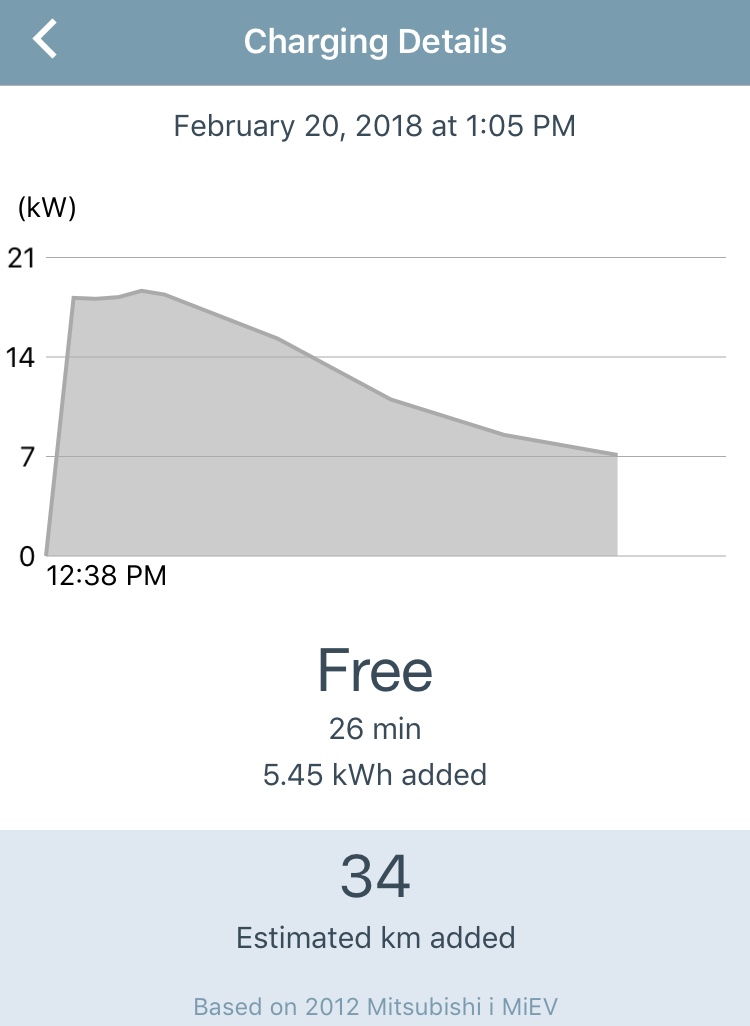ChrisEV
Well-known member
The demand pricing for L3 charging is going to be a problem. I’d have thought doing a higher up front investment with solar and a large battery would be a good alternative.
In Canada we seem to pay similar prices as in the US for L3 charging and around here our stations were subsidized to the government. People are wondering if this a conspiracy to discourage EVs they’re expensive and often broken.
they’re expensive and often broken.
I don’t think I’d have taken the trip even if I had nicely spaced L3 chargers for free.
I’m not experienced enough with the i-MIEV to take a long trip and given that it was about 32F and windy I’m not sure what my range would be like. It also would have cost us time we didn’t have as we wanted to arrive before dark.
The hotel also doesn’t have a charger and Id need quite an extension cord to use the outlets here. Not sure how accommodating hotels are on this.
I might try the trip in the spring/summer when it’s warmer. We did a similar distance in November and the frequent stops for charging really annoyed the wife.
We are on a little V-day holiday so I’m not rocking the boat this time
In Canada we seem to pay similar prices as in the US for L3 charging and around here our stations were subsidized to the government. People are wondering if this a conspiracy to discourage EVs
JoeS said:ChrisEV, would you have taken that 160km winter trip in the i-MiEV if you had free CHAdeMO L3 spaced every 65km along the way?
I suspect that free (subsidized) L3 charging will gradually disappear. Given some of the present L3 cost structure (e.g., EVgo), at today's gasoline rates this makes long-distance BEV travel not only somewhat painful (timewise with <50kW stations) but also uncompetitive financially with ICE (except for Tesla).
I don’t think I’d have taken the trip even if I had nicely spaced L3 chargers for free.
I’m not experienced enough with the i-MIEV to take a long trip and given that it was about 32F and windy I’m not sure what my range would be like. It also would have cost us time we didn’t have as we wanted to arrive before dark.
The hotel also doesn’t have a charger and Id need quite an extension cord to use the outlets here. Not sure how accommodating hotels are on this.
I might try the trip in the spring/summer when it’s warmer. We did a similar distance in November and the frequent stops for charging really annoyed the wife.
We are on a little V-day holiday so I’m not rocking the boat this time














